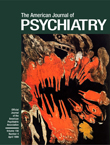To the Editor: Eric R. Kandel, M.D., valiantly tries to show the molecular basis of psychopathology and psychotherapy, but I fear that the chasm between brain and mind remains unbridged. Suggesting a molecular basis for the way in which experience changes the brain provides a mechanism for the way in which experience and brain interact but leaves unanswered how one becomes the other and what part this plays in psychopathology and psychotherapy. We already know that brain and mind interact. And we know, for some disorders, that some of the variance of etiologies comes from biological factors and that drugs can effect marked changes in some symptoms. I do not see what Dr. Kandel’s “new intellectual framework” adds.
He says that there are “critical biological underpinnings to all social actions”(p. 460). This may be important or trivial, depending on the circumstances. Understanding the biological details of how Rembrandt moved his muscles while painting hardly explains much about his artistic genius. Dr. Kandel does say that “for many aspects of group or individual behavior, a biological analysis might not prove to be the optimal level or even an informative level of analysis.” That’s just the point. Reducing something to biology may or may not be helpful.
Dr. Kandel criticizes social scientists who believe in a “radical mind-body dualism,” but demonstrating that experience alters the brain does not resolve this dualism. Fuller knowledge about how genes function does not account for how a thought, feeling, or choice becomes a physical thing. We avoid this dualism only by closing our eyes.
We accept the interaction of brain and mind, but this is not materialistic monism. Psychiatry should not have to choose between allying itself with neurology, psychology, or sociology. It should seek knowledge anywhere, if pertinent to understanding and treating psychopathology.
It is strange that Dr. Kandel believes that further biological knowledge can help psychoanalysis. It would be helpful if he supplied an example of how any crucial psychoanalytic hypothesis can be proved or disproved by a biological or psychological experiment. He cites the example of patients with lesions of the medial temporal lobe losing the ability to acquire new explicit memory for people and things but who retain the ability to learn motor skills. He takes this as a challenge to psychoanalysts to find where their unconscious is, with its struggle for expression and modification of unacceptable thoughts and desires. What experiment would prove or disprove that?
If we found lesions that removed usual behavioral restrictions and others that increased them, would they provide a scientific basis for psychoanalysis? We scarcely need new studies to show that many mental functions occur outside of awareness. That hardly proves any psychoanalytic hypothesis.

